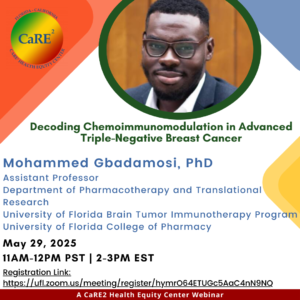
CaRE2 May Webinar with Dr. Gbadamosi
Please join us on May 29, for our CaRE2 Monthly Webinar at 11AM PT/2PM ET via Zoom featuring our CaRE2 ESI, Dr. Gbadamosi 👩🔬👨💻 Registration
We aspire to eliminate cancer health disparities among Blacks and Latinos living in California and Florida, and contribute to paving the way to eliminate disparities in these populations across the US. Our long-term goals are:
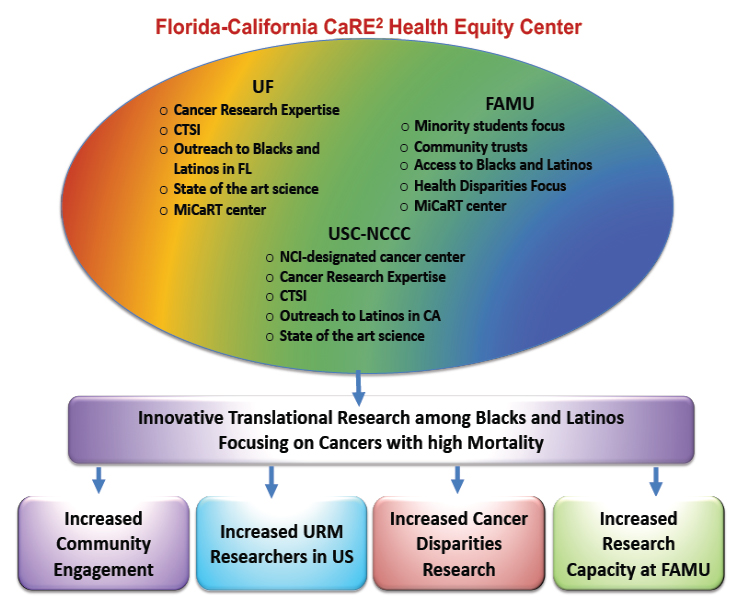
There are stark cancer health disparities among African-Americans and Latinos in the US. For example, for all cancers combined, the death rate is 25 percent higher for African-Americans than for whites. Compared to Whites, Latinos have higher rates for stomach, cervical, and liver cancer, as well as worse survival for several cancers. Leaders of this triad collectively have expertise in translational genomics; molecular and cancer epidemiology; cancer health disparity; drug discovery; interventions to reduce disparities; and management of cancer pain and end-of-life issues. Together, we foster and fund innovative translational research across the University of Southern California, the University of Florida, and Florida A&M University.
A key goal of the center is to diversify the research workforce focused on cancer and health disparities. The center provides research-training opportunities for underrepresented undergraduate and graduate students, postdoctoral fellows and early-stage investigators (ESI) and will promote their individual research and career development.
We work together with our communities in California and Florida to disseminate information, learn about community needs, and engage community members in research, training, and outreach. We develop materials tailored for our unique Black and Latino communities in Florida and Southern California, provide bilingual community training sessions across the two coasts, train community advocates, and develop a new generation of Citizen Scientists.

Please join us on May 29, for our CaRE2 Monthly Webinar at 11AM PT/2PM ET via Zoom featuring our CaRE2 ESI, Dr. Gbadamosi 👩🔬👨💻 Registration
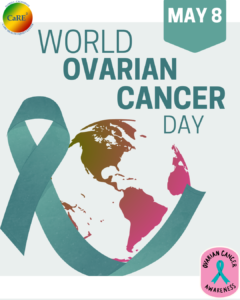
CaRE2 stands in unity across the globe to raise awareness for ovarian cancer, a disease that often goes undetected until it’s advanced. 💚 Let’s amplify
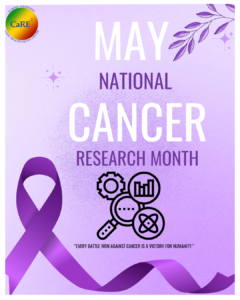
Join CaRE² as we recognize and honor the scientists, doctors, and advocates whose groundbreaking research fuels hope, drives innovation, and saves lives. Cancer research is
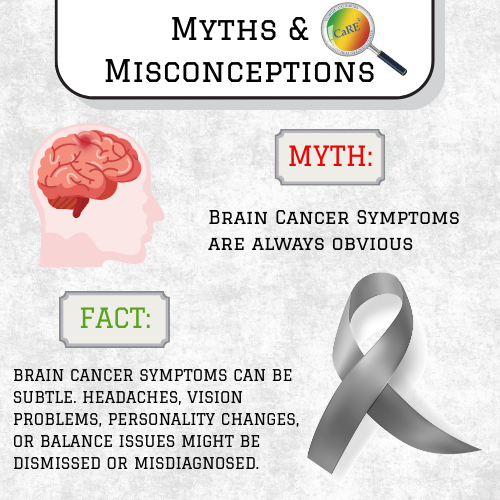
#CaRE2 #debunkingcancermyths #CancerResearch #InvestigaciondelCáncer #HealthEquity #CaRE2HEC #BrainCancerAwarenessMonth
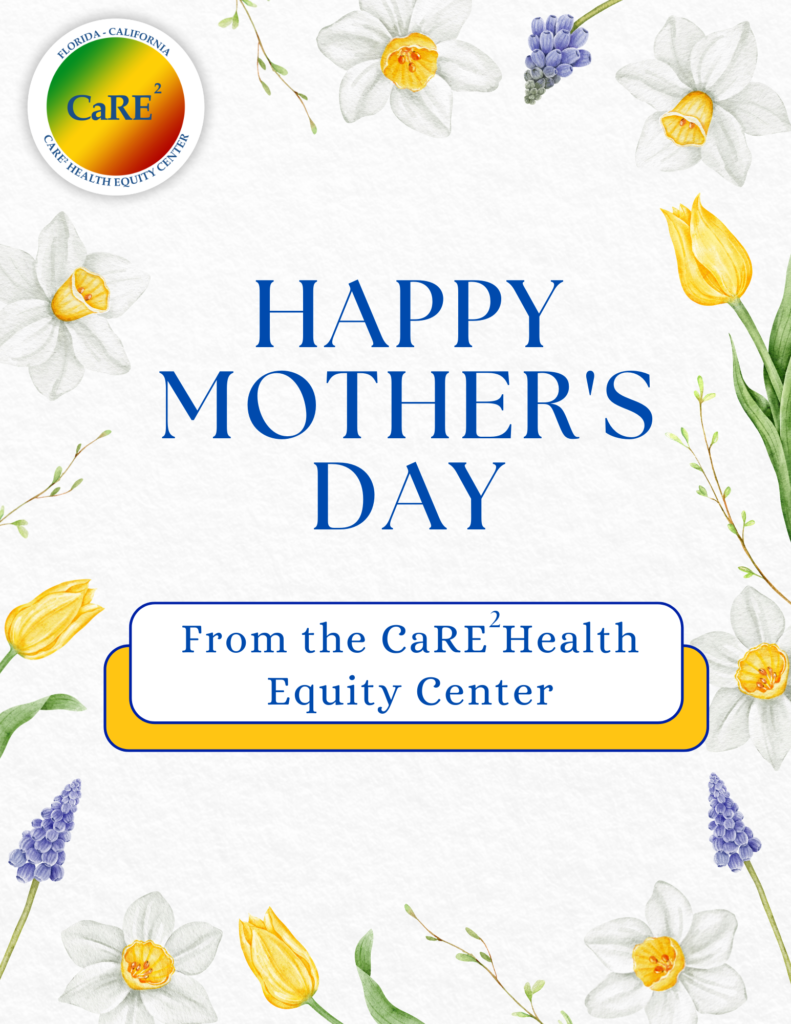
Happy Mother’s Day from the CaRE2 Health Equity Center! Today, we celebrate all of the mothers for their contributions, hard work, and love. #CaRE2#Mother‘sDay
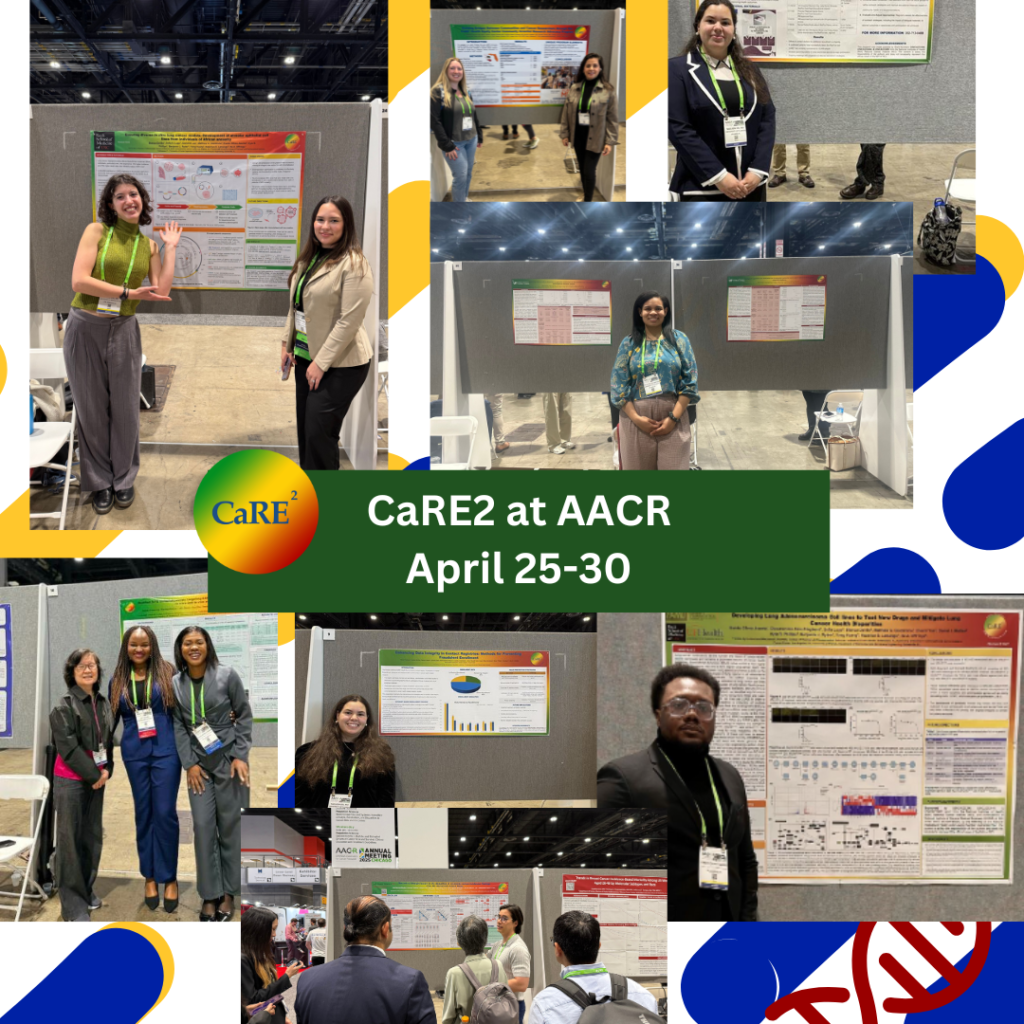
🌟 Our CaRE2 team had a fabulous time at the 2025 AACR Annual Meeting in Chicago! They enjoyed the many research presentations and collaborative discussions
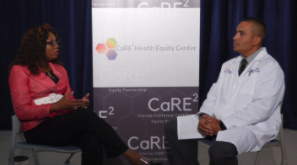
August 11, 2020
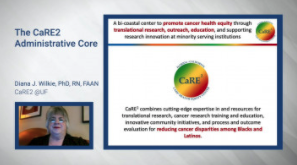
August 5, 2020
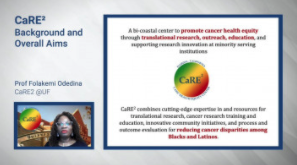
July 29, 2020
If you share our interest in reducing cancer health disparities, please consider becoming a member of the CaRE² center. Investigators, trainees, community leaders, and advocates are welcome.
Stay up to date with the latest news and information about CaRE2
